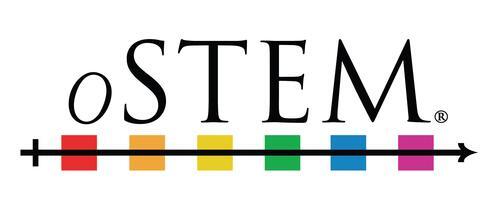Out in Science, Technology, Engineering and Mathematics (oSTEM) is a new club for LGBTQ+ students at Binghamton University. oSTEM is a nonprofit international organization for LGBTQ+ people in the science, technology, engineering and mathematics (STEM) fields working to create a safe community and environment for LGBTQ+ individuals to feel included, valued and empowered professionally and academically. oSTEM currently has around 90 chapters in universities, making it the largest chapter-based organization for LGBTQ+ students in STEM.
Eduardo Gomez, a senior majoring in systems science and industrial engineering, is the founder and president of the BU chapter of oSTEM. Gomez explained how oSTEM is important and should be brought to BU because it is necessary for everyone to support and empower LGBTQ+ students in STEM and ensure they feel safe and valued, as it is not talked about much in the STEM field.
“I just finished an internship this past summer and being in a professional technical setting, I realized it is kind of hard to talk about myself being gay,” Gomez said. “Like I had to hide that just because it isn’t normal to talk about within the STEM field.”
Although oSTEM focuses on networking, creating connections and fostering a safe environment within the STEM field, any LGBTQ+ students or allies are welcomed to join any of the club’s upcoming meetings and events. Danny Iacobacci, a junior majoring in computer engineering, is the secretary for oSTEM. Iacobacci encouraged anyone interested in joining to stop in for an event, regardless of their major.
“Even though our events and our core vision are geared toward the STEM field, we are of course opened to anyone, whether they are an ally or part of the LGBTQ+ community, to really empower everyone,” Iacobacci said.
The newly formed club has already hosted two general interest meetings with over 45 students in attendance, while more and more students are joining each week. Gomez and Iacobacci hope oSTEM will officially be chartered by the Student Association (SA) by spring of next year. The meetings do not occur on a set day due to the long labs and conflicting schedules of most STEM students, allowing as many students to attend meetings when they can instead of missing out every week due to a strict meeting schedule.
The first general body meeting for oSTEM will be held at 8 p.m. on Oct. 29, which will include DIY spooky season crafts. Attendees can paint, carve a pumpkin, color, draw or partake in any other craft activity while meeting the oSTEM E-Board and other members of the club. The Zoom ID to join is located on the group’s Instagram account, @ostembing, where you can also find all the information for any future meetings and events.
The club also plans to use the upcoming meeting to gauge what the members want to see from oSTEM at BU. They are currently planning a speaker series and want to know which speakers would excite their members most. oSTEM chapters also focus on professional networking and development events, which Gomez and Iacobacci plan to ask for feedback from the members on possible future career and academic events.
There will also be a resume and LinkedIn workshop to help prepare members who are interested in the oSTEM conference on Nov. 12. The conference will be held by oSTEM International and is fully online this year. The convention has workshops and networking opportunities with companies. Members can register for free on the oSTEM official website.
To be officially recognized as a chapter, the club needs to complete the chartering process with the SA. In the meantime, the club will be hosting events of its own with LGBTQ+ STEM professionals to speak to members and events aimed toward empowerment for LGBTQ+ students. Once the club is charted, oSTEM provides a network allowing for international connections with other LGBTQ+ students and professionals in STEM. Currently, Gomez and Iacobacci are working to create connections with oSTEM chapters at other campuses, such as Rutgers University and Miami University.
“That network alone helps you connect with other students and feel more comfortable doing anything you do after [BU],” Gomez said. “With our speaker series, we’re trying to connect with different professionals so they can come talk to us and let people know that it’s okay to be LGBTQ+ in the professional setting.”
Iacobacci also said he feels that the attitudes and efforts toward inclusion for LGBTQ+ students, especially at BU, could be improved. They feel creating oSTEM is important for the University because the more LGBTQ+ organizations on campus, the more progressive and LGBTQ-friendly the campus will be. Iacobacci expressed frustrations over the absence of BU pride merchandise.
“You can’t go to the bookstore and buy a pride flag on a shirt or anything like that,” Iacobacci said. “And that’s something we’re really looking to change.”
Due to the lack of BU’s pride merchandise, Gomez and Iacobacci decided to take the issue into their own hands and are planning to make their own pride merchandise in the spring semester. They are collecting art submissions, which anyone can send to their Instagram accounts through direct messaging, or to their email, ostembing@gmail.com. They will choose which designs to use and turn them into merchandise for students.
While Gomez believes BU as a whole should take necessary steps toward improving the inclusion of LGBTQ+ students on campus, Gomez expressed that the STEM department especially needs to work on being more LGBTQ-friendly. Gomez said LGBTQ+ students in STEM usually do not have a specified place to comfortably be themselves nor a group to empower them within their majors and career goals.
“Within the STEM field here at [BU], it isn’t something that we just talk about in our labs,” Gomez said. “There isn’t that space for us to openly talk about that with our professors and classmates. We thought this was a huge step that [BU] needed and was lacking within the LGBTQ+ community.”



